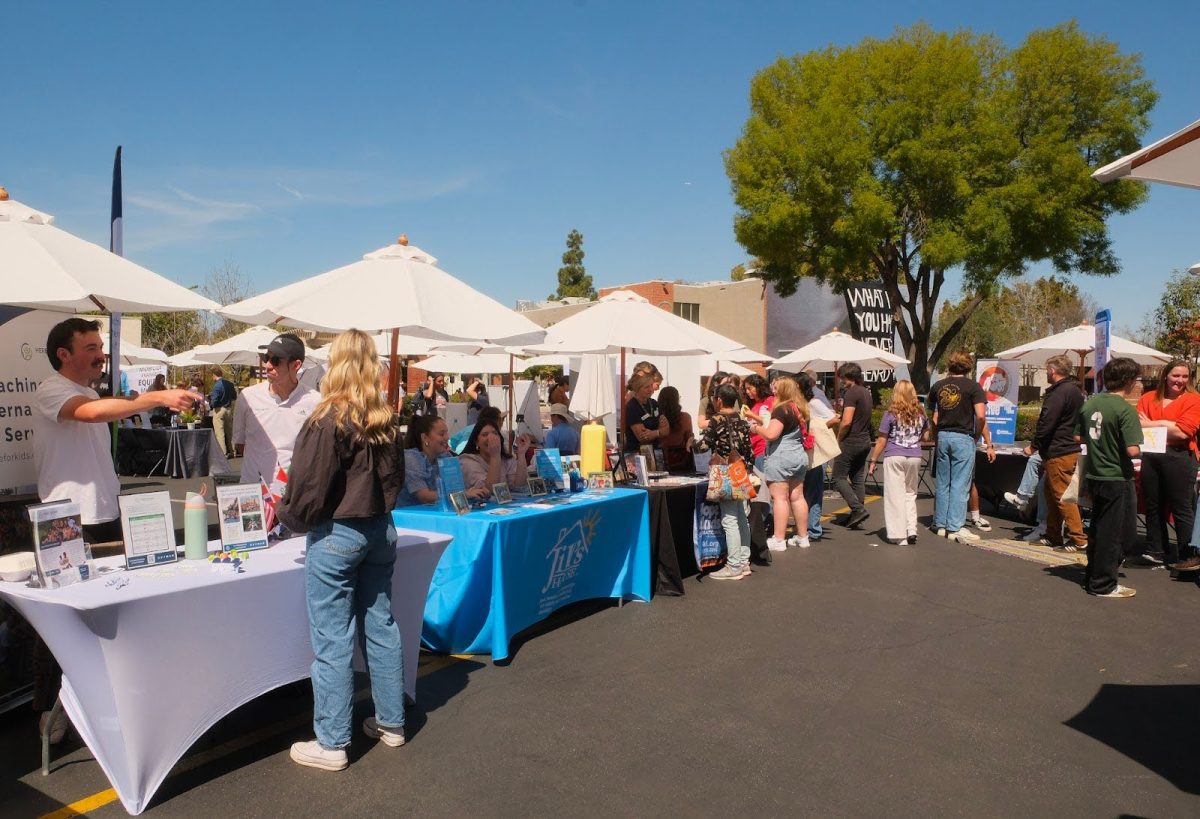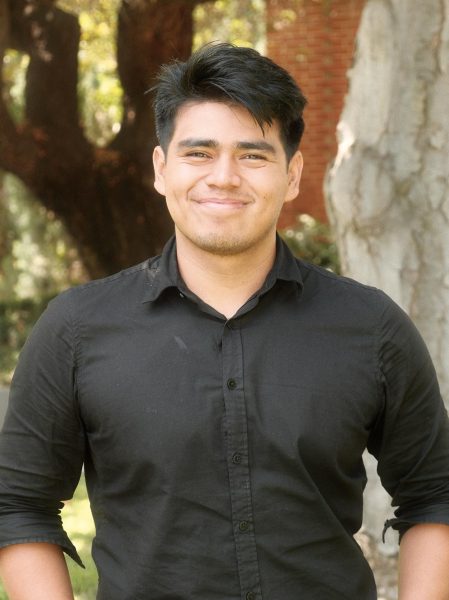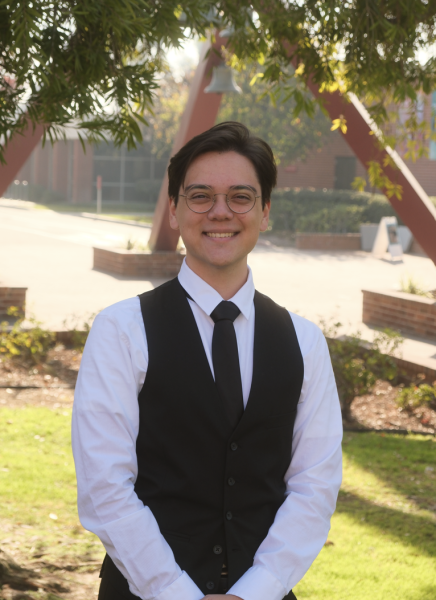Walking into Missions Conference 2025 was a bittersweet experience. All of the beauty surrounding Missions Conferences, from the worship to the prayer to the learning, was often overshadowed by the fact that I am a graduating senior and this one will be my last Missions Conference.
SPIRITUAL NOURISHMENT
Missions Conference has truly nourished my soul by providing an intentional space for communal worship, prayer and meditation. It is truly a blessing to have the opportunity to take time off school and experience the unfathomable beauty of God’s love as an entire school community.
One of the first ways that I became spiritually nourished by Missions Conference was through the speakers themselves. Not only did each year’s speakers share stories that inspired and convinced me, but they also shared invaluable lessons and wisdom that continue to guide my life today. Having the opportunity to listen to some of our faith’s biggest, most important voices in our Church, like Francis Chan and John Mark Comer, is a tremendous blessing. The theology and wisdom that are shared at these sorts of gatherings are truly a gift from God to the Biola community.
Additionally, Missions Conference always served as an opportunity to engage in the life of the Christian church, spread throughout the world. By being presented in a very real way with the challenges facing the Church throughout the world, I developed a deeper sense of universal care, responsibility and commitment to my fellow Christian sisters and brothers. Together, these experiences played a big role in my continued discernment of how God wants me to serve Him as a student passionate about politics and government.
In a more practical way, Missions Conference provided me the opportunity to experience and participate in more evangelical worship. Having grown up in a non-evangelical setting, the form of worship that took place before and after each talk was very foreign to me. But it was through the Missions Conference that I not only softened my heart to new ways of worship but also found myself deeply connected with God through intentional worship songs.
To put it simply, my mind, heart and soul would not be what they are today without Missions Conference.
YOU CAN BE A MISSIONARY TODAY
One of the most important things I learned from John Mark Comer’s session was how discipleship is the best way we can be missionaries in the world today. In other words, by living good, Christian lives we can share the Gospel with those in our immediate sphere of influence.
Here, I think Comer highlighted how underrated the power of a life well-lived really is.
The truth is many of us aren’t called to be missionaries in the way most people think about it: moving to another country, church planting, translating the Bible into native languages, etc. However, all of us are called to be good disciples in our day-to-day lives. The world needs good men and women, good fathers and mothers, good sons and daughters and good professionals. As rising Christian professionals, we should be preparing ourselves to serve Christ through our particular callings, whether that be nursing, graphic design, psychology, or film.
The practical way we can minister to the world through our careers is by simply loving well. To be Christian is to follow the way of love. As St. Paul reminds us in 1 Corinthians 13:1: “If I speak in the tongues of men and of angels, but have not love, I am a noisy gong or a clanging cymbal. And if I have prophetic powers, and understand all mysteries and all knowledge, and if I have all faith, so as to remove mountains, but have not love, I am nothing.”
Let us not forget that one good way to change the world around us, to bring souls to Christ, is by making the ordinary, extraordinary — through love.
FEELING UNWORTHY
Lord Jesus Christ, Son of God, have mercy on me, a sinner.
I would often reflect on my own long-standing weaknesses and sins and think to myself that I was so unworthy of carrying on the legacy of missions. Listening to the stories of missionaries who have suffered for the faith and others who have been martyred solidified this feeling in me. I felt so unworthy of being a participant in missions in any sort of way.
This experience is so similar to the experience that many Christians go through when they begin to learn, meditate and become inspired by the stories of the saints — holy people who are honored and respected for fully living and dying — for their faith. It is the feeling of unworthiness that plagues many people from seriously considering serving greater roles at churches and church-affiliated initiatives like missions.
And I think that was one of the beautiful things about this year’s Missions Conference theme, “CALLED,” and its theme verse, as beautifully worded on their website: “God is calling every single one of us to be a part of his great plan and story, living our lives missionally anywhere he calls us — not settling for something that is easy or something that we want, but truly surrendering everything to the Lord and obeying his plan and vision for our lives.”
Christ himself chose 12 rather ordinary men (fishermen, businessmen, tax collectors and even a persecutor of the Church) to build his Church and pass down the Apostolic faith. The calling of the Apostles teaches us modern Christians an important lesson: God calls ordinary people and equips them for His extraordinary purposes.
NEED TO INCLUDE A GREATER VARIETY OF SPEAKERS
Unfortunately, I’ve had the experience of going to the missions fair and not being able to fully participate because I’m not an evangelical, protestant Christian, but a Catholic.
This experience is prevalent amongst students of “high churches” that includes students of Catholic, Orthodox, Anglican and Lutheran backgrounds. Some organizations, by default, prohibit Catholics and students of other high churches from engaging in their missions organizations. Additionally, they also aren’t viable options for high church students due to the existing theological differences that each organization adheres to. In other words, while we can attend conferences, learn about missions, and worship — we are unable to find real ways to connect and serve as missionaries. I believe this experience highlights a greater need at Biola — to include non-evangelical speakers and organizations.
Missions Conference would greatly benefit from expanding its scope of speakers. These churches have a rich history with missions that can be both useful and spiritually enhancing to the entire Biola community. Why not bring Franciscans, Jesuits, or Norbertines — groups of pious Christian missionaries with hundreds of years of experience, knowledge and wisdom? If not for the entire community, then at least for the numerous high church students who consistently feel like outsiders and outcast, being unable to participate and feel represented at events like Missions Conference.
THANK YOU MISSIONS CONFERENCE TEAM
As I prepare to embark on the journey after Biola, I cannot help but express my utmost gratitude to the entire Biola community, especially the Missions Conference team. In sharing this part of my experience with Missions Conference, I hope I have encouraged any current and future Biola students to be intentional about Missions Conference — because, when given the opportunity, it can change your life.
My life has been radically transformed by my journey through Biola. The Lord has shaped, moved and refined me in ways that were unimaginable only a few years ago.
From the bottom of my heart, and on behalf of the entire Biola community, thank you Student Missionary Union for spending countless hours making this event possible. The lives of each and every student on campus have been impacted tremendously by the work that you do each and every day of the year.







